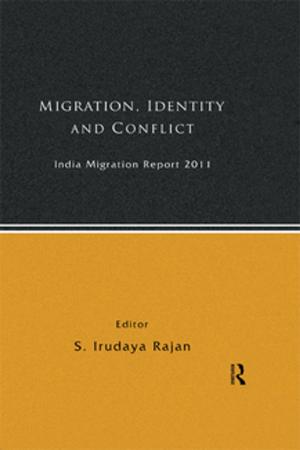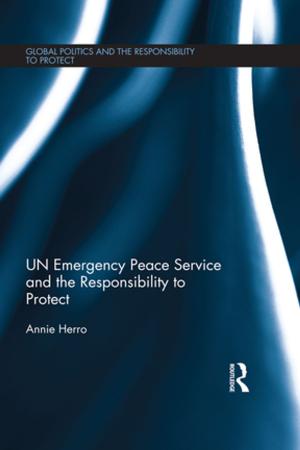The Unfinished Revolution in Nigeria’s Niger Delta
Prospects for Environmental Justice and Peace
Nonfiction, Social & Cultural Studies, Political Science, International, Social Science| Author: | ISBN: | 9781351056007 | |
| Publisher: | Taylor and Francis | Publication: | June 4, 2018 |
| Imprint: | Routledge | Language: | English |
| Author: | |
| ISBN: | 9781351056007 |
| Publisher: | Taylor and Francis |
| Publication: | June 4, 2018 |
| Imprint: | Routledge |
| Language: | English |
The 1990s heralded waves of spectacular forms of local resistance and globalized protest against oil exploitation and environmental pollution in oil-producing regions of the developing world. One of the most spectacular local uprisings against global oil multinationals was led by the Ogoni people who were protesting against the exploitation and marginalization of oil-producing ethnic minority communities in the Niger Delta region of Nigeria. However, the hanging on November 10, 1995 of nine Ogoni ethnic minority and environmental justice activists, including Ken Saro-Wiwa, only served to exacerbate protests in later years. Within a decade, dozens of locally rooted insurgent groups emerged in the Niger Delta and construed themselves as part of the social movement for ethnic minority rights and environmental justice which dates back to colonial times. However, the trajectory of the revolutionary momentum has changed over time, reflecting a mix of progressive, opportunistic and retrogressive trends.
This book provides a critical study of the trajectory of struggles in the Niger Delta since 1995, paying attention to continuities and changes, including recent developments linked to the shift from local resistance, to the rupturing of the Presidential Amnesty peace deal (largely to the Movement for the Emancipation of the Niger Delta) and the resurgence low-intensity sporadic armed militancy—led by the Niger Delta Avengers militia among others. The contributors critically interrogate the nature of the region’s political economy, socio-economic trends and trajectories over the past two decades. This collection also accentuates the lessons learnt, prospects for self-determination, socio-economic and environmental justice and peace in the aftermath of the hanging.
The 1990s heralded waves of spectacular forms of local resistance and globalized protest against oil exploitation and environmental pollution in oil-producing regions of the developing world. One of the most spectacular local uprisings against global oil multinationals was led by the Ogoni people who were protesting against the exploitation and marginalization of oil-producing ethnic minority communities in the Niger Delta region of Nigeria. However, the hanging on November 10, 1995 of nine Ogoni ethnic minority and environmental justice activists, including Ken Saro-Wiwa, only served to exacerbate protests in later years. Within a decade, dozens of locally rooted insurgent groups emerged in the Niger Delta and construed themselves as part of the social movement for ethnic minority rights and environmental justice which dates back to colonial times. However, the trajectory of the revolutionary momentum has changed over time, reflecting a mix of progressive, opportunistic and retrogressive trends.
This book provides a critical study of the trajectory of struggles in the Niger Delta since 1995, paying attention to continuities and changes, including recent developments linked to the shift from local resistance, to the rupturing of the Presidential Amnesty peace deal (largely to the Movement for the Emancipation of the Niger Delta) and the resurgence low-intensity sporadic armed militancy—led by the Niger Delta Avengers militia among others. The contributors critically interrogate the nature of the region’s political economy, socio-economic trends and trajectories over the past two decades. This collection also accentuates the lessons learnt, prospects for self-determination, socio-economic and environmental justice and peace in the aftermath of the hanging.















